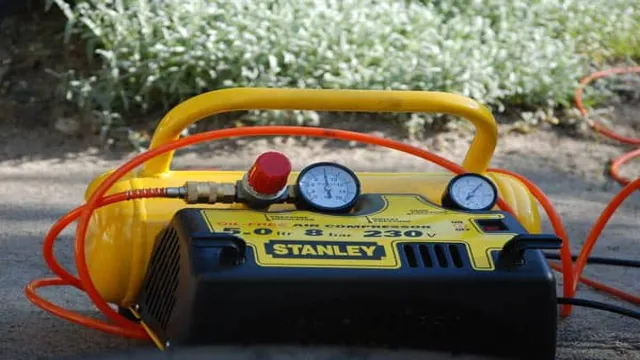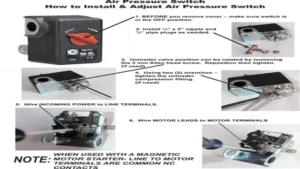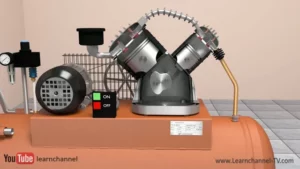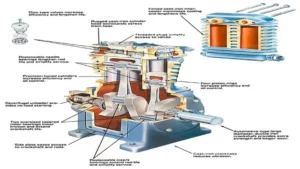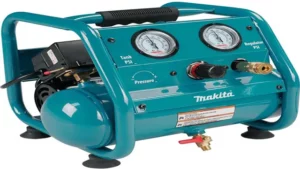If you own both a pressure washer and an air compressor, you might wonder if you could use them interchangeably. While both devices use compressed air, the answer isn’t as straightforward as a simple yes or no. Pressure washers and air compressors have different functions, and their output pressure and volume vary significantly.
Therefore, it’s important to understand the differences and limitations before attempting to use a pressure washer as an air compressor. In this blog post, we will explore whether a pressure washer can be used as an air compressor and what you should keep in mind to ensure safety and effectiveness.
Understanding Pressure Washers and Air Compressors
One question that often comes up when discussing pressure washers and air compressors is whether a pressure washer can be used as an air compressor. The answer to that question is no, a pressure washer cannot be used as an air compressor. While both machines may share similarities in terms of their capabilities to produce high pressure, their functions are fundamentally different.
A pressure washer is designed to blast water at high speeds to clean surfaces, while an air compressor is designed to generate compressed air for use in powering pneumatic tools. Attempting to use a pressure washer as an air compressor will not only not work properly, but it could also potentially be dangerous. It’s important to understand the distinct purposes of these machines and to use them for their intended uses to ensure optimal performance and safety.
How Pressure Washers Work
Pressure washers and air compressors are both used to generate high-powered streams of air or water, making them essential tools for a variety of cleaning and industrial applications. Pressure washers work by forcing water through a narrow nozzle at a high pressure, creating a concentrated stream that can remove dirt, grime, and other debris from surfaces. They can be powered by electricity or gas, and are ideal for cleaning everything from decks and patios to vehicles and heavy equipment.
Air compressors, on the other hand, use compressed air to power tools and equipment such as sanders, paint sprayers, and nail guns. Compressors can come in a variety of sizes and types, ranging from small portable models to large stationary units, and are used in a wide range of industries including automotive, construction, and manufacturing. Understanding the differences between pressure washers and air compressors can help you select the right tool for your needs and ensure that you get the most efficient and effective cleaning or power tool performance possible.
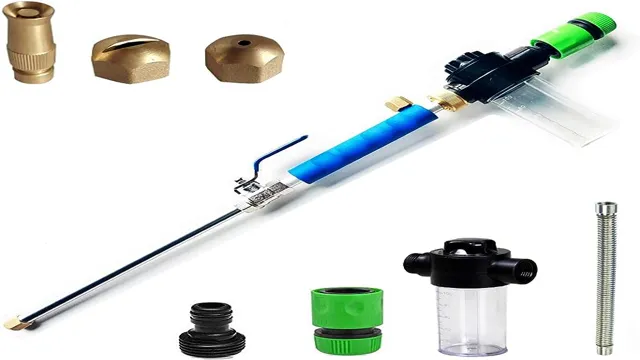
How Air Compressors Work
Air compressors are incredible machines that use a motor to compress air and increase the pressure within a tank. When a machine or tool needs pressurized air to operate, the air compressor forces air through a hose at high velocity, providing the necessary power to get the job done. These machines come in various sizes and capabilities, from small, portable models for home DIY projects to large industrial compressors that power entire factories.
It’s important to consider the needs of the individual job when selecting an air compressor, as different machines offer different levels of pressure, volume, and power. Regular maintenance is also crucial for preserving the lifespan of an air compressor and ensuring safe operation. So whether you’re inflating your tires or powering industrial machinery, an air compressor is an invaluable asset for getting the job done right.
Differences between Pressure Washers and Air Compressors
Can a pressure washer be used as an air compressor? While both tools utilize powerful pressure to get the job done, they have distinct differences. A pressure washer uses high-pressure water to clean surfaces such as vehicles, sidewalks and decks. On the other hand, an air compressor uses compressed air for activities such as powering air tools, inflating tires and cleaning.
While some pressure washer models may have attachments to inflate tires or air mattresses, they are not designed to function as a true air compressor. Attempting to use a pressure washer as an air compressor could lead to damage and potentially dangerous situations. It’s important to use the right tool for the job to ensure safety and effectiveness.
Pressure Output
When it comes to cleaning and maintenance, pressure output plays a significant role in deciding between pressure washers and air compressors. Although both machines appear to operate similarly, there are fundamental differences between them. A pressure washer’s primary function is to blast water under high pressure, removing dirt, grime, and stubborn stains from hard surfaces.
On the other hand, an air compressor provides compressed air for a variety of tasks, ranging from painting, cleaning, and inflating tires. The primary difference between both machines lies in their pressure output. The pressure output of a pressure washer is measured in PSI (pounds per square inch), and the output of an air compressor is measured in CFM (cubic feet per minute).
Therefore, when selecting a machine, it’s crucial to consider the specific cleaning task at hand and the pressure output required for optimal results.
Air Flow Output
Air Flow Output Pressure washers and air compressors are two powerful tools commonly used in commercial and residential settings for cleaning, painting, and powering pneumatic tools. Both machines generate high output pressure, but they differ in terms of air flow output. Pressure washers propel a high-pressure stream of water to remove dirt, grime, and debris from surfaces.
They typically provide a narrow, focused jet that can reach up to 4000 PSI (pounds per square inch) and a flow rate of 4 gallons per minute. In contrast, air compressors generate compressed air that can power a wide range of air tools, including nail guns, sanders, and spray guns. They have a variable PSI output that can range from 90 to 150 PSI, depending on the compressor’s size and capacity.
However, air compressors generally have a higher flow rate, measured in CFM (cubic feet per minute). This enables them to deliver more consistent and sustained power for extended periods, making them ideal for industrial use. Ultimately, the choice between a pressure washer and an air compressor depends on the specific task at hand.
If you need to clean a surface or remove heavy debris, a pressure washer is the best option. If you plan to use air-powered tools or need a consistent source of compressed air, an air compressor is the better choice.
Usage
Pressure washers and air compressors have quite different uses and functionalities. Pressure washers work by using high-pressure water to clean surfaces, while air compressors are used to power pneumatic tools. While a pressure washer can be used to clean dirt and grime off of cars or outdoor surfaces, an air compressor would not be able to do that.
On the other hand, an air compressor can power tools like nail guns and impact wrenches, which a pressure washer cannot do. The main difference between the two is the type of pressure they use – water pressure for pressure washers, and air pressure for air compressors. So, when deciding on which to purchase, it’s important to consider what tasks you need to accomplish.
If you need to clean surfaces, then a pressure washer will be the more suitable option. However, if you’re doing DIY projects or need to work with pneumatic tools, then an air compressor will likely be a better choice.
Can You Convert a Pressure Washer into an Air Compressor?
Have you ever wondered if your pressure washer can double as an air compressor? Unfortunately, the answer is no. While pressure washers and air compressors may look similar, they are designed for vastly different tasks. Pressure washers work by using a motor to pump water through a powerful spray nozzle, while air compressors use a motor to compress air and store it in a tank for later use.
While it may be tempting to try and convert your pressure washer into an air compressor, doing so could be incredibly dangerous. The pressure required to compress air is much higher than the pressure required for a pressure washer, and attempting to use a pressure washer for this purpose could result in a serious accident. Ultimately, it’s best to leave air compressor tasks to a specialized air compressor and stick to using your pressure washer for its intended purpose: cleaning.
The Risks Involved
Using a pressure washer as an air compressor may seem like a convenient idea, but it comes with risks. First and foremost, the pressure washer is not designed to handle compressed air, which means it may not be able to withstand the pressure and could ultimately fail. Additionally, pressure washers typically use water as a lubricant, whereas air compressors require oil for lubrication purposes.
This means that the components inside the pressure washer may not stay lubricated properly, potentially leading to damage over time. Moreover, using a pressure washer as an air compressor may void any warranties that came with the pressure washer in question. All in all, while it may seem like a cost-effective solution, attempting to convert a pressure washer into an air compressor is not advisable and could ultimately lead to safety issues.
The Steps Involved in Conversion
When it comes to converting a pressure washer into an air compressor, it can be a tricky process that requires several steps. First and foremost, you need to determine if the pressure washer you have is suitable for conversion. Once you have a suitable pressure washer, you will need to drain all the water from the pump and fill it with oil, as air compressors require oil lubrication.
Next, you will need to replace the standard spray gun with one that has a fitting to attach an air hose. You will also need to install a pressure regulator and valve to control the amount of air pressure being produced. Finally, you will need to attach an air compressor hose to the air fitting, and you’re good to go! However, keep in mind that while it may be possible to convert a pressure washer into an air compressor, it may not be the most cost-effective or efficient solution.
It’s important to do your research and consider the long-term effects of such a conversion. It may be more beneficial to invest in a new, separate air compressor that is specifically designed for your needs.
Conclusion
In conclusion, using a pressure washer as an air compressor is like trying to make a pizza in a waffle iron – it might seem possible, but it’s not a recommended or efficient method. While the two machines may look similar and share some components, they are designed for distinct purposes and should be used accordingly. So, save yourself the headache (and potential damage to your machine) and stick to using a pressure washer for cleaning and an air compressor for inflating your tires or powering your pneumatic tools.
Your equipment (and taste buds) will thank you!”
FAQs
What is the difference between a pressure washer and an air compressor?
A pressure washer is used for cleaning purposes and uses high-pressure water to achieve this, while an air compressor is used to power pneumatic tools and equipment.
Can you use a pressure washer as an air compressor?
No, a pressure washer does not have the components necessary to function as an air compressor.
Do pressure washers and air compressors require different types of maintenance?
Yes, pressure washers and air compressors have unique maintenance requirements due to their different functions and components.
What should I consider when choosing between a pressure washer and an air compressor?
Consider what tasks you will be performing, whether you need high-pressure water or air power, and the size and capacity of the equipment.
Can I use the same hose for a pressure washer and an air compressor?
No, pressure washer hoses and air compressor hoses are designed differently and cannot be interchanged.
Are pressure washers and air compressors safe to use?
Yes, as long as they are used correctly and all safety precautions are followed.
Should I rent or buy a pressure washer or air compressor?
This depends on how often you will use the equipment and the length of time you will need it for. It may be more cost-effective to rent for infrequent use, but buying may be better for regular or long-term use.
